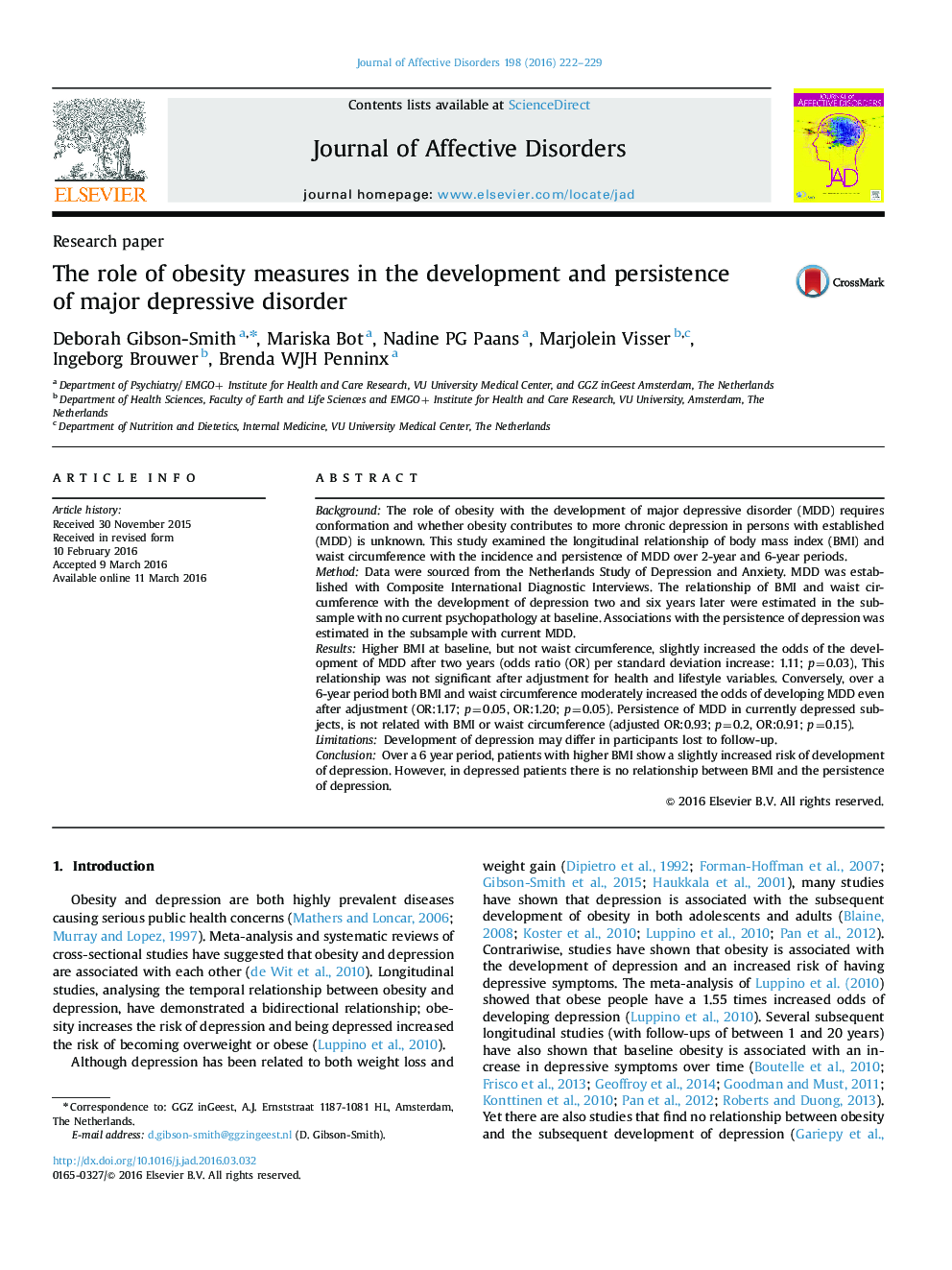| کد مقاله | کد نشریه | سال انتشار | مقاله انگلیسی | نسخه تمام متن |
|---|---|---|---|---|
| 6230226 | 1608127 | 2016 | 8 صفحه PDF | دانلود رایگان |
- Higher BMI does not increases the odds of developing MDD over a 2 year period.
- Over a 6-year period BMI moderately increases the odds of developing MDD.
- There is no relationship between BMI and the persistence of MDD in depressed adults.
BackgroundThe role of obesity with the development of major depressive disorder (MDD) requires conformation and whether obesity contributes to more chronic depression in persons with established (MDD) is unknown. This study examined the longitudinal relationship of body mass index (BMI) and waist circumference with the incidence and persistence of MDD over 2-year and 6-year periods.MethodData were sourced from the Netherlands Study of Depression and Anxiety. MDD was established with Composite International Diagnostic Interviews. The relationship of BMI and waist circumference with the development of depression two and six years later were estimated in the subsample with no current psychopathology at baseline. Associations with the persistence of depression was estimated in the subsample with current MDD.ResultsHigher BMI at baseline, but not waist circumference, slightly increased the odds of the development of MDD after two years (odds ratio (OR) per standard deviation increase: 1.11; p=0.03), This relationship was not significant after adjustment for health and lifestyle variables. Conversely, over a 6-year period both BMI and waist circumference moderately increased the odds of developing MDD even after adjustment (OR:1.17; p=0.05, OR:1.20; p=0.05). Persistence of MDD in currently depressed subjects, is not related with BMI or waist circumference (adjusted OR:0.93; p=0.2, OR:0.91; p=0.15).LimitationsDevelopment of depression may differ in participants lost to follow-up.ConclusionOver a 6 year period, patients with higher BMI show a slightly increased risk of development of depression. However, in depressed patients there is no relationship between BMI and the persistence of depression.
Journal: Journal of Affective Disorders - Volume 198, 1 July 2016, Pages 222-229
